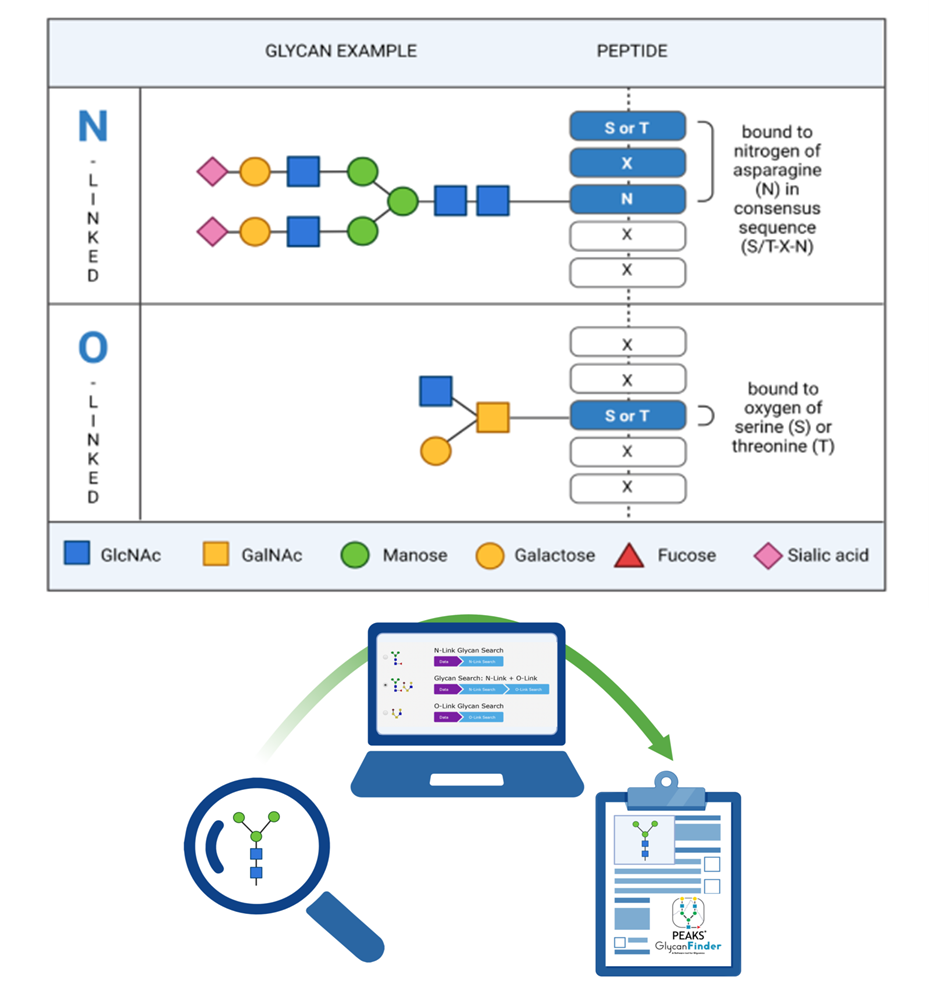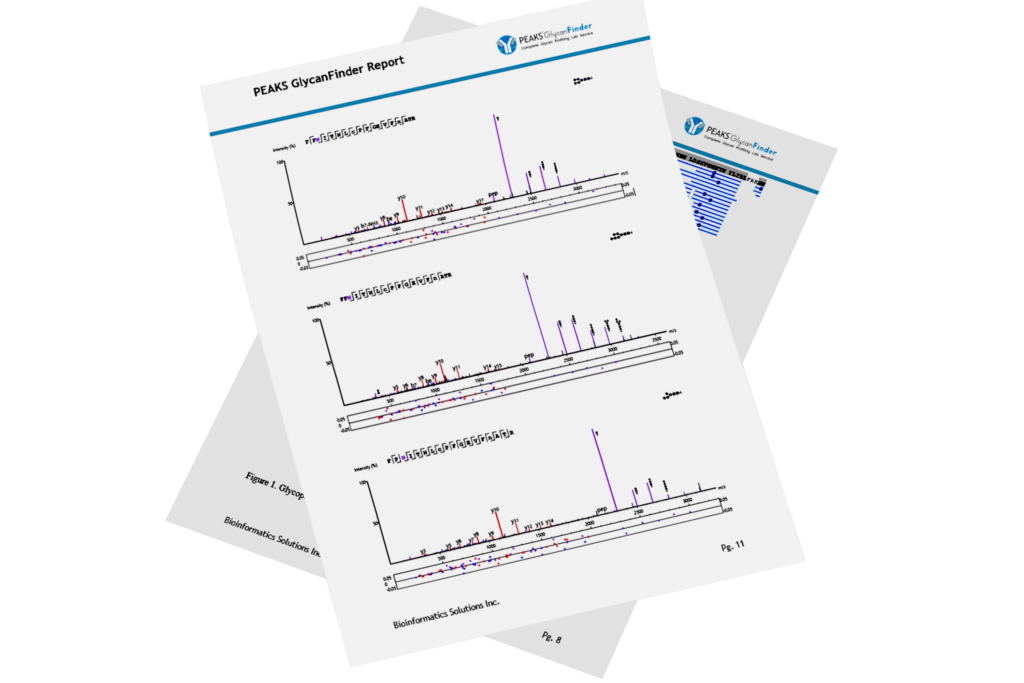

Glycosylation is a fundamental post-translational modification that plays a key role in protein stability, function, and interactions. It regulates critical biological processes such as cell signalling, immune recognition, and disease progression. Aberrant glycosylation has been linked to poor prognosis in cancers and altered immune responses to infections, making glycan analysis a valuable tool for both biomarker discovery and therapeutic development.
In the biopharmaceutical industry, ensuring consistent glycosylation patterns is essential for optimising biologic drugs, as variations can impact efficacy, stability, and immunogenicity. Our innovative DeepGlycan service provides site-specific characterisation of important glycans at the protein and peptide level.

Request Pricing / Schedule Consultation
Glycan Profiling and Glycopeptide Analysis
Service Description:
Our service is designed to meet your glycoproteomic needs using our optimised protocols and continually improving PEAKS® GlycanFinder software. Our workflows accommodate a wide range of sample types, including gel pieces, purified proteins, and cell lysates. For purified proteins, we offer a specialised analysis service that includes N- and O-linked glycopeptide mapping, with the option to supplement results with intact mass glycoform data. Additionally, we provide optimised glycan enrichment procedures to enhance glycoproteomic analysis for complex samples and cell lysates.
Workflow:
In-solution or in-gel digestion → LC-MS/MS → Glycan profiling/identification → Quantification (optional)

What we need:
- For purified proteins, we require >25 μg of sample provided in-solution of in gel
- For protein mixtures (including cell lysates), a minimum of 100 μg total protein content
- Buffer information
- Target protein information eg. amino acid sequence, fasta database, species
What we deliver:
- PEAKS Glycan Report
- List of Identified Glycoproteins
- List of Identified N-linked and O-linked glycopeptides
- Peptide mapping for high-scoring glycoproteins
- MS2 spectra of top supporting glycopeptides
- 2 week turnaround time
- Personalised meetings with lab scientists
- Raw data and project file (viewer-version only)

References & Resources
References
- He, M., Zhou, X. & Wang, X. Glycosylation: mechanisms, biological functions and clinical implications. Sig Transduct Target Ther 9, 194 (2024). https://doi.org/10.1038/s41392-024-01886-1

Want to know more? Request more details to learn why our methodology and experience gives you better results than our competitors. Have questions? We’ll be happy to answer any of your inquiries today.

